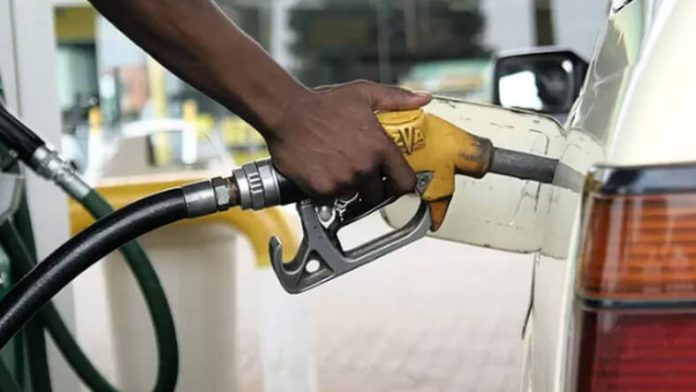The National Petroleum Authority (NPA) has set a new price floor for Oil Marketing Companies (OMCs) selling petroleum products from May 1, to May 15, 2024.
Based on a circular sent to the OMCs and Bulk Oil Distribution Companies, seen by JOY BUSINESS, a litre of petrol is not expected to be sold below GH¢13.63.
This represents some marginal increase from the GH¢13.02 announced by the NPA when the policy started from April 16, 2024.
Diesel has been kept unchanged with a price floor of GH¢13.07 a litre.
The NPA also directed that a kilogram of Liquefied Petroleum Gas (LPG) must not be sold less than, GH¢10.55 pesewas.
This represents an increase from the GH¢10.52 quoted from April 16 2024.
The circular reminded all the various players including the OMCs to strictly comply with the new pricing guidelines for the industry.
The price floor announcement covers the second pricing window for petroleum products, which runs from April 16 to April 30, 2024.
According to some industry analysts, the new pricing floor, for the window, could cause prices of petrol to go up slightly from May 1 to May 15, 2024.
NPA on the new pricing guidelines
The NPA has explained that the price floor is needed to check undercutting in the industry.
It maintained that some corrupt practices if not checked could threaten the stability of the industry.
The programme has faced some criticism from players in the industry, who have described the policy as anti-free market programme.
The NPA has justified its decision, insisting that the policy will check undercutting.
The NPA added that the price floor is also part of the Amended Pricing Guidelines rolled out on April 1, 2024.
According to the Amendment to the Pricing Guidelines, the NPA “shall set and communicate price floors for the deregulated products for each pricing window.”
In a letter to industry players signed by the Deputy Chief Executive of the NPA, Curtis Perry Okudzeto advised all the Petroleum Service Providers to strictly comply with the guidelines.
The NPA promised that it shall periodically furnish Petroleum Service Providers with the full pricing formula, stating the specific taxes, levies, and margins applicable for each pricing window in excel format.
The Petroleum Service Providers, according to the NPA “shall comply with the price floors set for the deregulated petroleum products for each window by not selling products below those prices”.
Industry Concerns
A month after introducing this policy, some players in the industry continue to raise concerns about the programme. The Chamber of Bulk Oil Importers for instance have raised concerns about the Forex Rate used in setting the price floor. They want the NPA to use the Bloomberg Rates for the forex component in setting the prices, rather than the Bank of Ghana rates.
The Executive Secretary of the Chamber of Petroleum Consumers (COPEC) Duncan Amoah argued that “If the NPA is setting a price floor for the industry, then they should also set a price ceiling as well”.
The Executive Director of the African Centre for Energy Policy, Ben Boakye, has also argued that the market is not ready for the policy, due to the current challenge facing the sector.
ALSO READ:
GCX CEO drives dialogue on transformation of Africa’s cocoa industry

